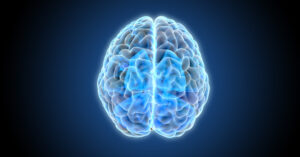
Brain fog is a common symptom of menopause, though it can be worrying for some women, particularly if their family has a history of dementia or Alzheimer’s. To help women determine if they are battling menopause brain fog or a more serious cognitive condition, Midi Health has partnered with Neurotrack to offer a screening, the companies announced last week.
Menlo Park, California-based Midi Health is a virtual care clinic for women going through their perimenopause and menopause stages. It offers hormonal and non-hormonal medications, coaching and preventive health guidance. Neurotrack, based in Redwood City, California, is a creator of digital cognitive assessments to support the diagnosis of dementia and Alzheimer’s disease.

With the Rise of AI, What IP Disputes in Healthcare Are Likely to Emerge?
Munck Wilson Mandala Partner Greg Howison shared his perspective on some of the legal ramifications around AI, IP, connected devices and the data they generate, in response to emailed questions.
Midi Health clinicians can now send patients a three-minute online cognitive screening from Neurotrack. The assessment uses Neurotrack’s Symbol Match test, which asks the patient to “determine whether two symbols are equal or not by referencing a legend with assorted number-symbol pairs,” said Elli Kaplan, CEO and co-founder of Neurotrack, in an email. The test can be completed on a smartphone, tablet or desktop computer.
“Studies show that multiple brain regions, especially the fronto-parietal and fronto-occipital networks, are activated during this type of exam which suggests why it’s particularly good at detecting subtle changes in cognition. … The result is based on the speed and accuracy of the patient’s answers compared to those of other women the same age,” Kaplan said. “And it scores instantly and objectively, which lightens the administrative burden for healthcare teams.”
If patients receive a low score indicative of a possible cognitive condition, they can be referred to other providers for help. If the assessment determines that the patient is just suffering from brain fog, they can receive treatment from their Midi Health clinician. Examples of treatment include diet, lifestyle changes and medications, according to Joanna Strober, CEO of Midi Health.
Midi Health chose to provide this screening to patients after hearing that brain fog is a concern for many of them. About 74% of Midi patients say this is one of the main reasons they sought treatment from the company, Strober said.
“We have heard from our patients that they are concerned with the symptoms of mental fuzziness and forgetfulness that often accompanies perimenopause and menopause, and they really want to know whether what they are experiencing is just this ‘menopause brain’ or a sign of something more serious going on,” Strober said in an email. “We did our research and considered many partners, but Neurotrack was the clear stand out for this kind of screening.”
Neurotrack chose to work with Midi Health because of the fact that two-thirds of Americans battling Alzheimer’s are women, Kaplan added.
“One of the leading theories for this disparity is that it is the result of the hormonal changes that occur in women during menopause,” she said. “Couple that with the fact that so many women experience brain fog as a symptom of menopause, which can increase the level of concern that brain fog could be an early sign of future cognitive impairment, particularly for those with a family history of Alzheimer’s.”
Several other digital health companies also support women going through menopause, including Gennev and Evernow. These companies also provide treatment for brain fog.
Photo: Jolygon, Getty Images.














